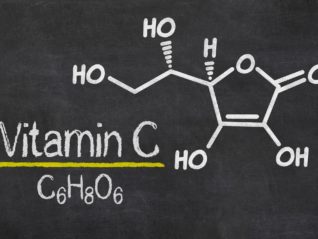
by Noelle Patno, PhD
The common cold is a viral infection of the upper respiratory tract. Viruses that cause colds include more than a hundred different kinds of rhinoviruses, coronaviruses, influenza, respiratory syncytial virus (RSV), and many more. No wonder adults get colds 2-3 times a year on average and with even higher frequency for children and college students. As the most common human illness that leads to missed work and school, colds stay prevalent due to the many variants of viruses that cause colds and the fact that some viruses do not provoke long-lasting immunity.1
Many natural supplements aim to help us defend against the common cold by providing immune-enhancing ingredients. Others offer a targeted offense by using natural compounds that bind to the viruses themselves.
Natural proteins with virus-binding activity
Lactoferrin is a natural protein found in saliva, respiratory and gastrointestinal fluids, and breast milk. Lactoferrin can bind to many viruses including RSV and many cell receptors used by viruses, thereby preventing the virus from binding to human cells. Case in point, an in vitro study demonstrated that bovine lactoferrin adhered to rhinovirus B-14 and interfered with its entry into the cells.2 Another in vitro study demonstrated its ability to disrupt the infection and replication of severe acute respiratory syndrome coronavirus-2 (SARS-CoV-2),3 which is further under evaluation in humans.
Another milk protein, bovine immunoglobulins, has also been found to bind specifically to human RSV and influenza in vitro.4 Binding to human RSV was recently confirmed in addition to the new finding that bovine immunoglobulin prevented RSV infection in a preclinical model.5
Lactoferrin, lactoperoxidase, and whey protein exert other antimicrobial effects,6 further supporting the use of these milk proteins in targeting the common cold.
These proposed mechanisms of action form the basis for the following clinical trial using lactoferrin and immunoglobulin-rich whey protein to prevent colds.
Evidence from randomized clinical trial7
This trial enrolled a total of 126 participants 18 years or older who had experienced two or more cold-related symptoms for two or more days in the previous six months. This cold-susceptible population did not consume supplements such as vitamins, minerals, herbs, or probiotics and did not have a history of chronic disease or alcohol or substance abuse.
The intervention was a total of 600 mg of a lactoferrin- and immunoglobulin-rich whey protein or placebo for 90 days. Participants tracked symptoms of sneezing, cough, sore throat, headache, nasal congestion, sinus swelling, and fatigue in terms of start and stop dates, symptom severity, and use of medications.
Results
The virus-binding protein combination showed a significant effect on upper respiratory tract infection in terms of quantity and symptoms with nonsignificant decreases in duration and severity of symptoms.
- The treatment resulted in more than 57% fewer colds than the placebo group (48 colds v. 112 colds), significant at p<0.001
- When data was corrected for potential confounders (environmental factor—dust storms and adherence to consumption—number of capsules returned), the cold reduction was still significant at p<0.001
- The total number of cold-associated symptoms was significantly less in the treatment group vs. the placebo group (p<0.05)
- Total sick days and severity of symptoms were lower but not statistically significant
Why is this clinically relevant?
- The common cold significantly reduces school, work, and other activities and is often caused by viruses
- Lactoferrin and immunoglobulins bind to viruses that cause the common cold
- In adults with a recent history of colds, this combination of virus-binding proteins significantly reduced the number of colds and number of cold-associated symptoms
Citations
- Pappas DE. The Common Cold. In: Principles and Practice of Pediatric Infectious Diseases. Elsevier; 2018:199-202.e1.
- Denani CB et al. Lactoferrin affects rhinovirus B-14 entry into H1-HeLa cells. Arch Virol. 2021;166(4):1203-1211.
- Salaris C et al. Protective effects of lactoferrin against SARS-CoV-2 infection in vitro. Nutrients. 2021;13(2).
- den Hartog G et al. Specificity and effector functions of human RSV-specific IgG from bovine milk. PLoS One. 2014;9(11).
- Nederend M et al. Bovine IgG prevents experimental infection with RSV and facilitates human T cell responses to RSV. Front Immunol. 2020;11.
- Min S et al. Antimicrobial effects of lactoferrin, lysozyme, and the lactoperoxidase system and edible whey protein films incorporating the lactoperoxidase system against Salmonella enterica and Escherichia coli O157:H7. J Food Sci. 2005;70(7):m332-m338.
- Vitetta L et al. The clinical efficacy of a bovine lactoferrin/whey protein Ig-rich fraction (Lf/IgF) for the common cold: A double blind randomized study. Complement Ther Med. 2013;21(3):164-171.
Noelle Patno, PhD is the Nutrition Scientist for Digestive Health at Metagenics. Dr. Patno received her PhD in Molecular Metabolism and Nutrition and Masters in Translational Science from the University of Chicago, studying the role of microbial components in intestinal epithelial cell survival related to inflammatory bowel disease. Prior to her graduate studies, Dr. Patno received a chemical engineering degree from Stanford University and worked as an engineer. She has personal experience and interest in preventive nutrition and nutritional therapies for chronic disease, and her current role involves researching and developing probiotics, prebiotics, and other nutritional programs for the promotion of digestive and overall health.






